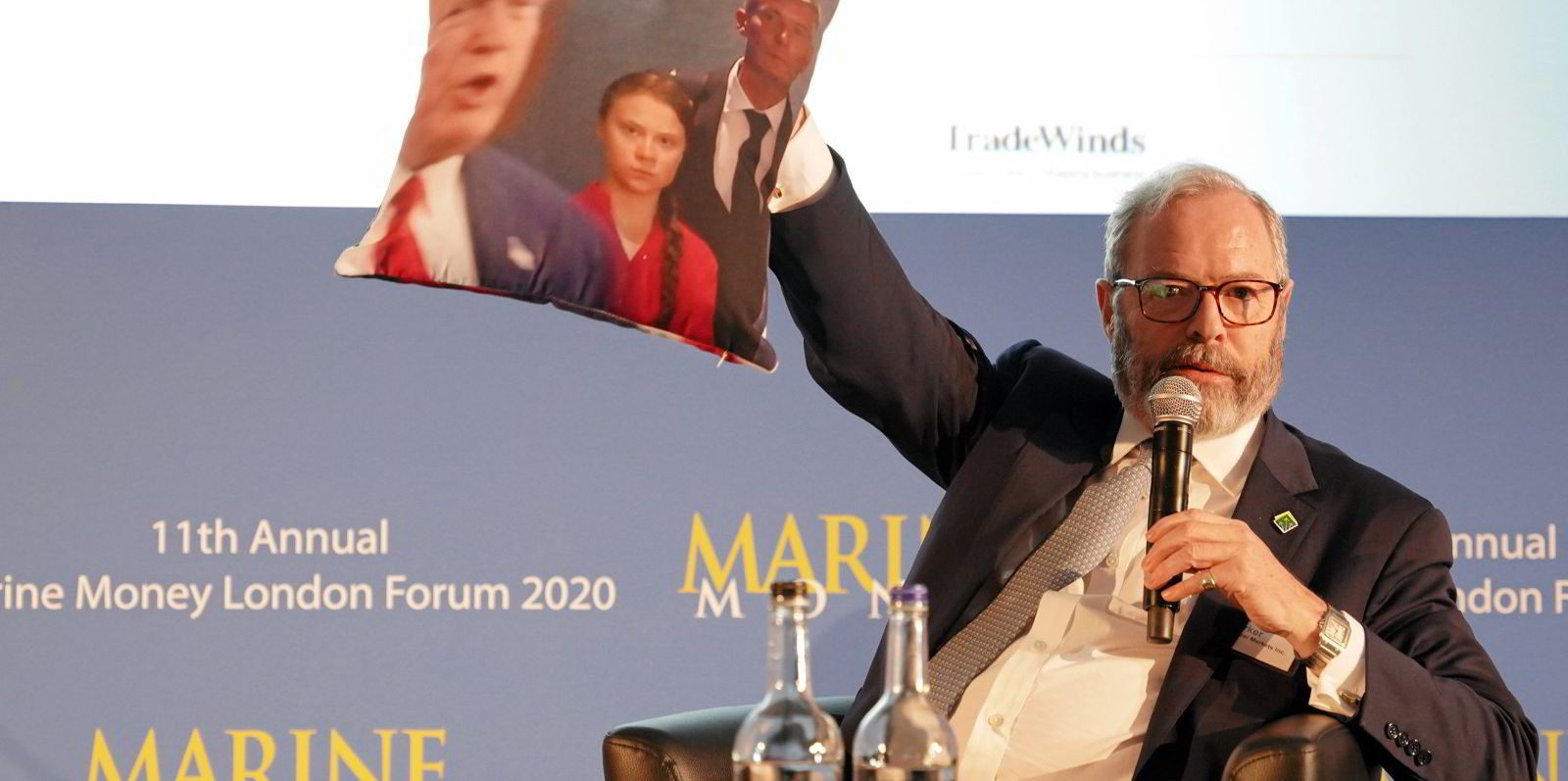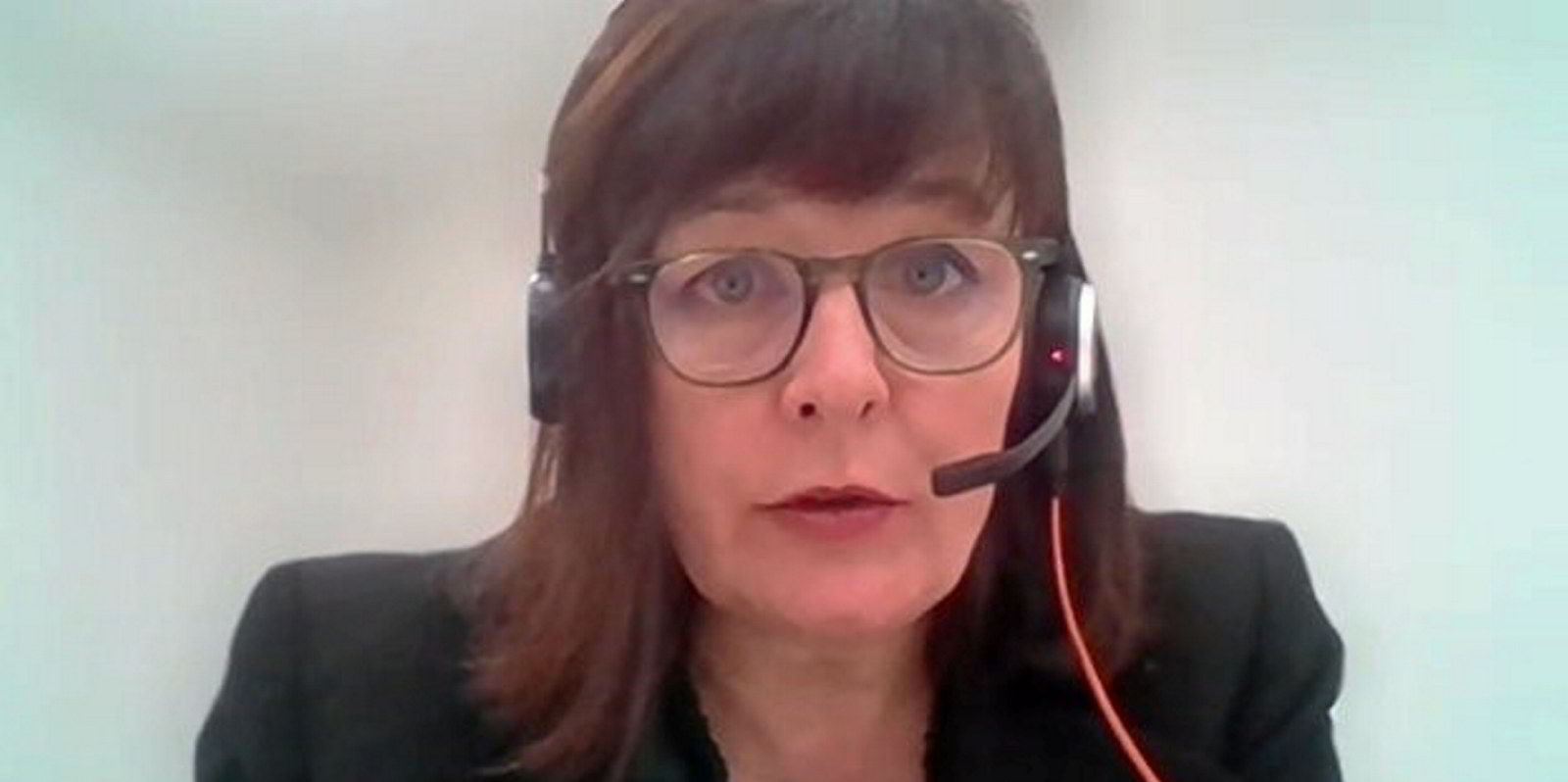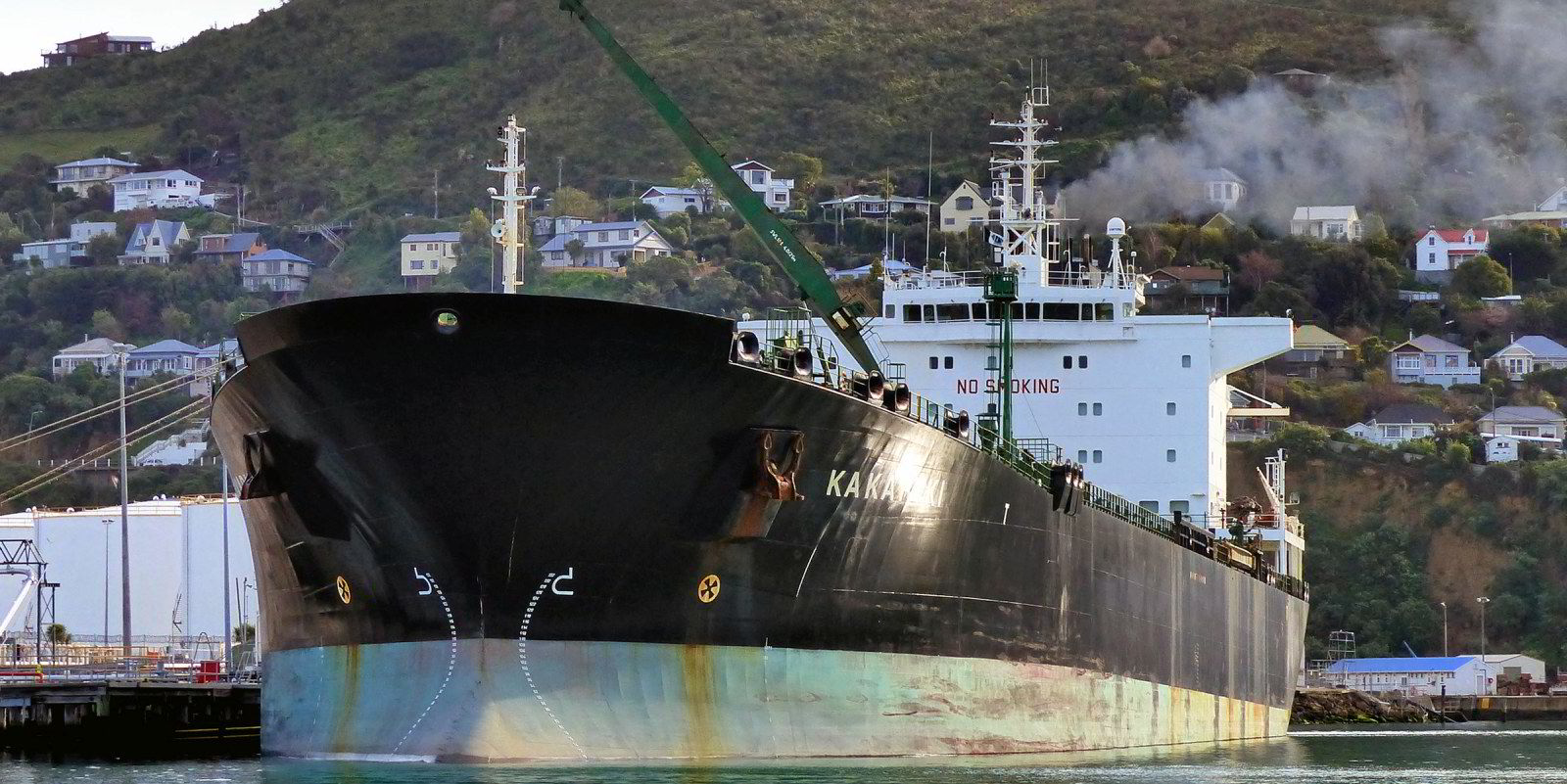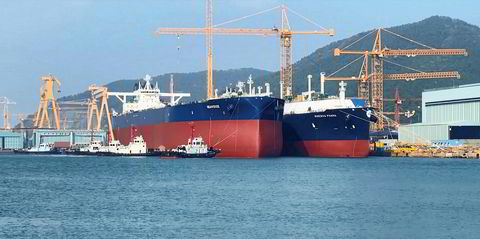Shipping loan portfolios run by the pioneers of the Poseidon Principles have seen their carbon emission benchmarks deteriorate sharply due to the unforeseen impact of a change in calculations and the Covid-19 shutdown of the cruise industry.
Michael Parker’s Citi saw its portfolio climate alignment move 11.7% above the target to hit the International Maritime Organization’s decarbonisation trajectory in 2021, while Paul Taylor’s Societe Generale overshot by 23.7%. Parker is chair, and Taylor vice chair, of the initiative.
The figures published in the Poseidon Principles 2021 disclosure report were far from the worst, with Bpifrance overshooting its target by 72.4% and Export Credit Norway by 64.4%.
Anger was clear to detect in a statement from Francois Lefebvre, general manager of Bpifrance which has a portfolio of cruise ships.
"The methodology for passenger ships, combined with the effect of Covid-19 on the cruise industry, has significantly affected our climate alignment score," he said.
"Considering that the absolute CO2 emissions of our shipping portfolio have fallen by above 50%, we feel the change in our score fails to represent the change in actual impact of our portfolio on the environment."
Parker, who is Citi’s chairman of global shipping, logistics and offshore, said without cruise the bank would have been 1.1% below its target. He pledged to seek to solve such inconsistencies.
"The fact that the cruise industry's actual emissions dropped dramatically in 2020 is not reflected in the result and as we continue to evolve the way in which emissions are measured and reported we will examine how we can resolve this sort of anomaly until the IMO settles on a consistent way of measuring passenger shipping carbon intensity."
The Poseidon Principles was launched in 2019 as a world-leading initiative by a group of major shipping banks to disclose publicly whether the vessels making up their loan portfolios were reducing emissions in line with IMO decarbonisation rules.

Its membership has grown from 20 to 29 this year, representing $185bn in loans. However, only 23 chose to disclose figures in the annual report. Member banks are required to publish their performance but only “in relevant institutional reports on a timeline that is appropriate for that signatory”.
Nowhere fast
Over the last year, calculation of the climate alignment target scores were skewed by changes to IMO metrics after the Fourth IMO GHG Study in 2020, and in the impact of the cruise shutdown.
Cruise ships and ferries that were put into 'hot lay-up' to be ready to resume trade fared badly under the calculations as they were burning fuel but going nowhere.
Vincent Pascal, head of shipping and offshore finance EMEA at BNP Paribas, the world's biggest shipping bank, overshot its trajectory by 7.5%, but excluding cruise it was 1.25% under.
"After a second year of reporting under the Poseidon Principles, we are still at the beginning of the journey. The results for 2020 have been influenced by methodological adjustments as well as unprecedented impact of the Covid-19 crisis on certain market segments.
"Still, they should help to form a building block for a better understanding of the factors behind the GHG emissions of our ship lending portfolio and help monitor a reduction of its footprint over time."
Thibaud Escoffier, global head of ship finance at Credit Agricole, which missed its target by 16.2%, said: "The road to 2030 then 2050, two major milestones for the necessary decarbonation of the shipping sector, is proving a bumpy one. This is not a surprise.
"The methodology and trajectory changes for passenger ships, implemented right when the cruise sector was going through a life-threatening crisis with all its operating assets forced in lay-up, turned our climate score measurement upside down and made a comparison with last year’s score next to impossible.
"We have nonetheless managed to improve our climate alignment score on the commodity shipping part of our portfolio by working closely with our core clients and supporting their fleet modernisation."
Some bankers were pleased with their own results. Jean-Philippe Guillon, global head of asset finance at Credit Industriel et Commercial, said: “We are very happy of the outcome of the year which fits with our strategy and is the consequence of the efficient manner most of our clients have operated their vessels in 2020.”
Other banks that beat their alignment score were Sparebank 1 SR-Bank -15.6%, Sparebanken Vest -14.5%, Finnvera -7.0%, ING -6.0%, SMFL -4.0%, Credit Suisse -2.4%, OCBC Bank -1.8%, Nordea -1.1% and SMTB -0.8%.
Those that overshot were Development Bank of Japan +0.5%, SEB +2.5%, Danske Bank +3.3%, Danish Ship Finance + 5.6%, SMBC +6.6%, and DNB.
Amsterdam Trade Bank and DVB both announced they were pulling out of the scheme as they were no longer writing new shipping loans.








